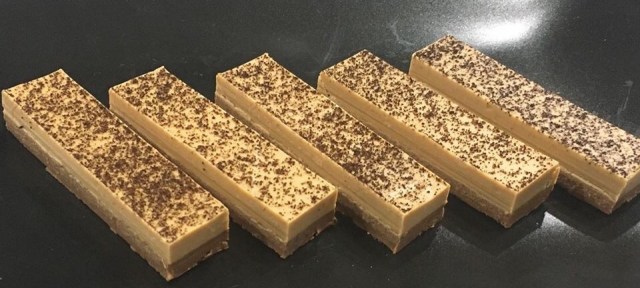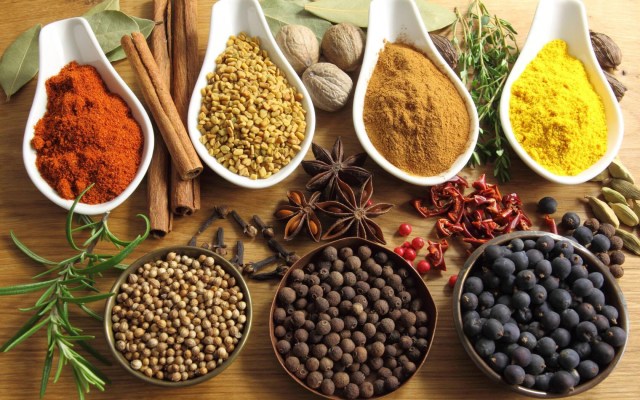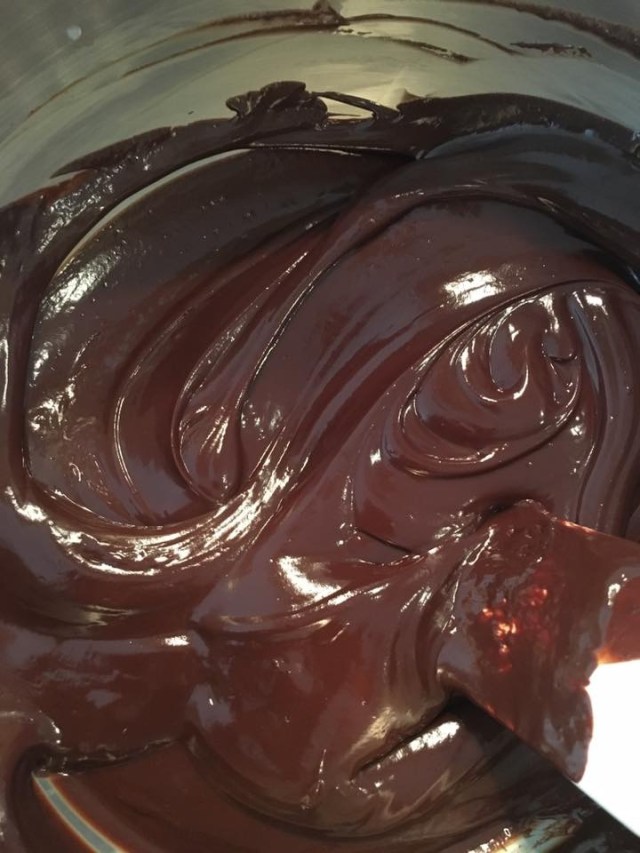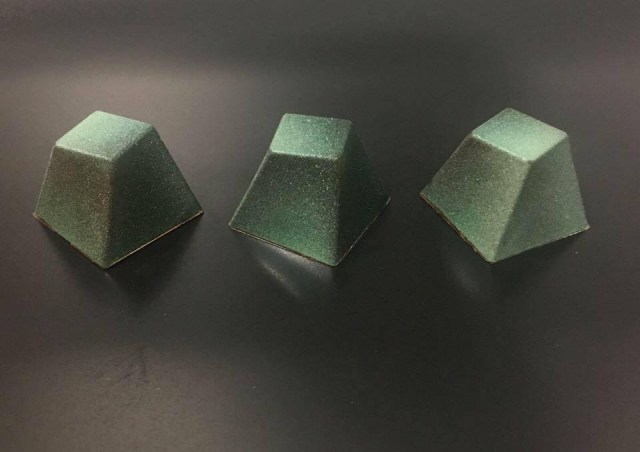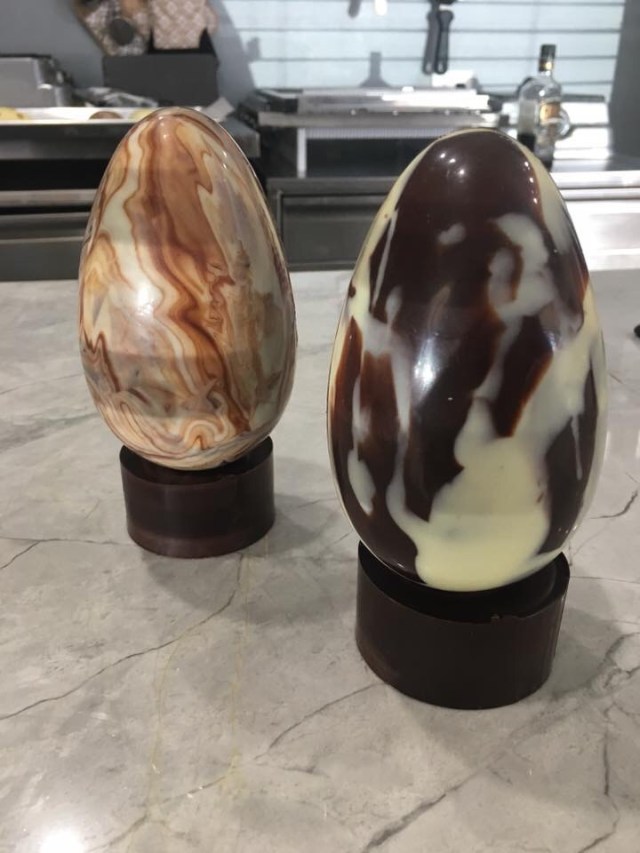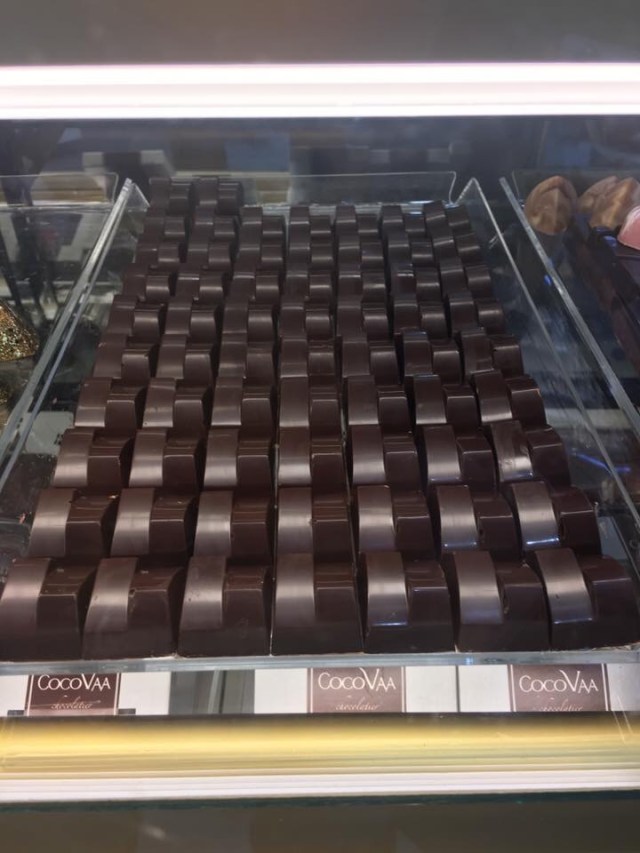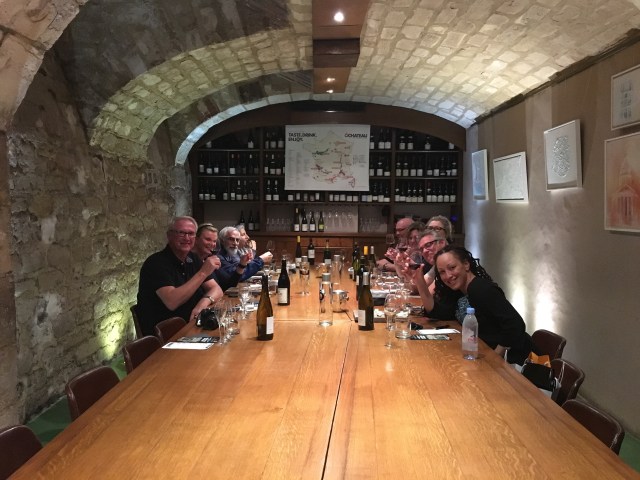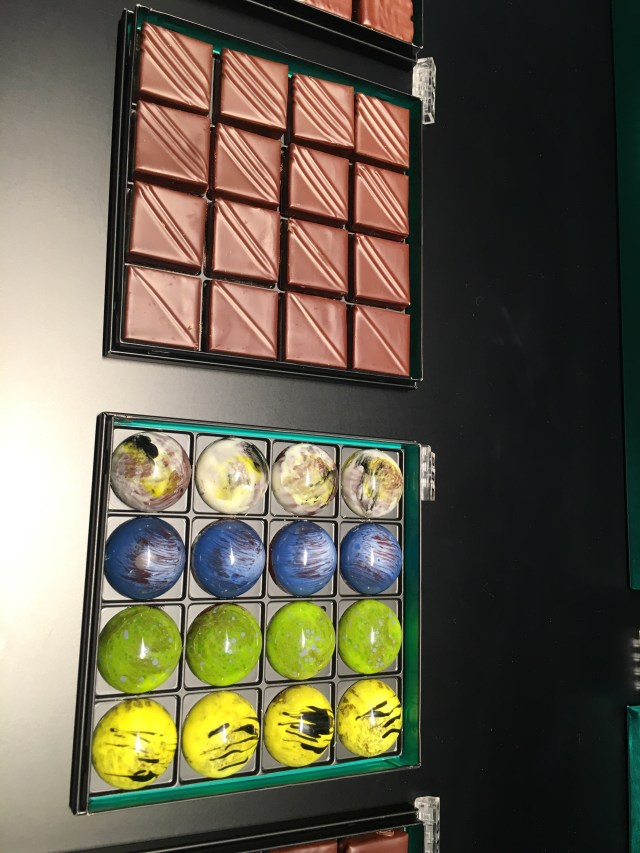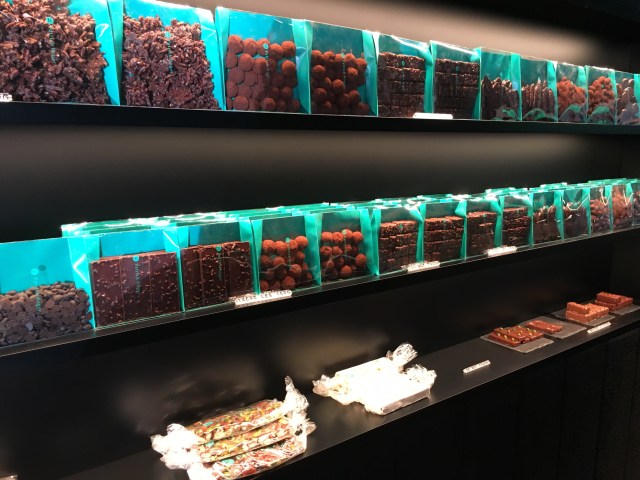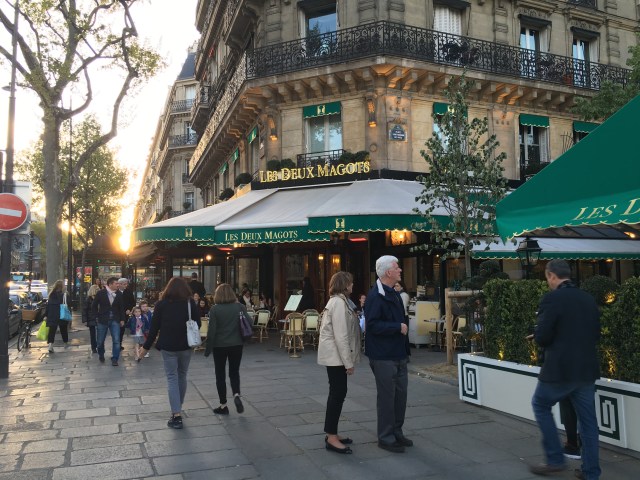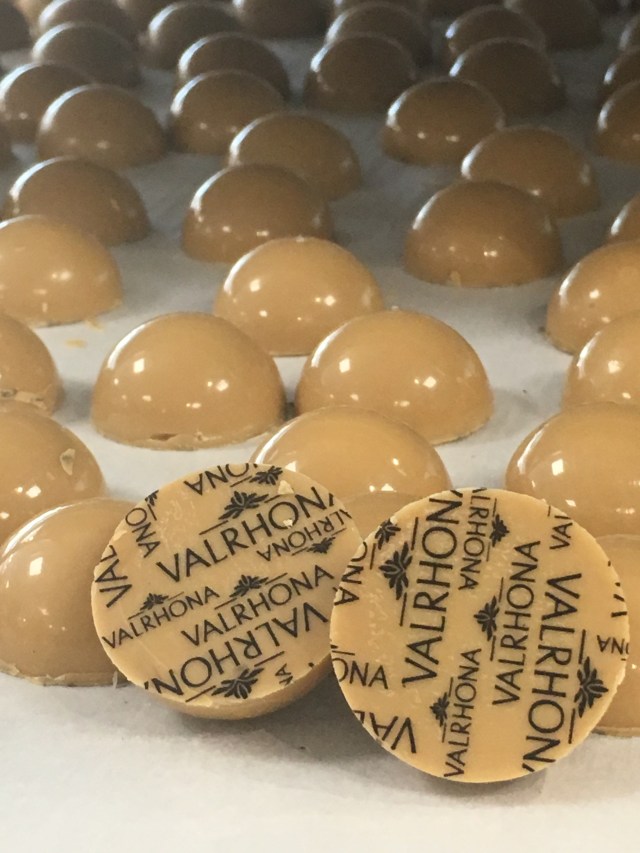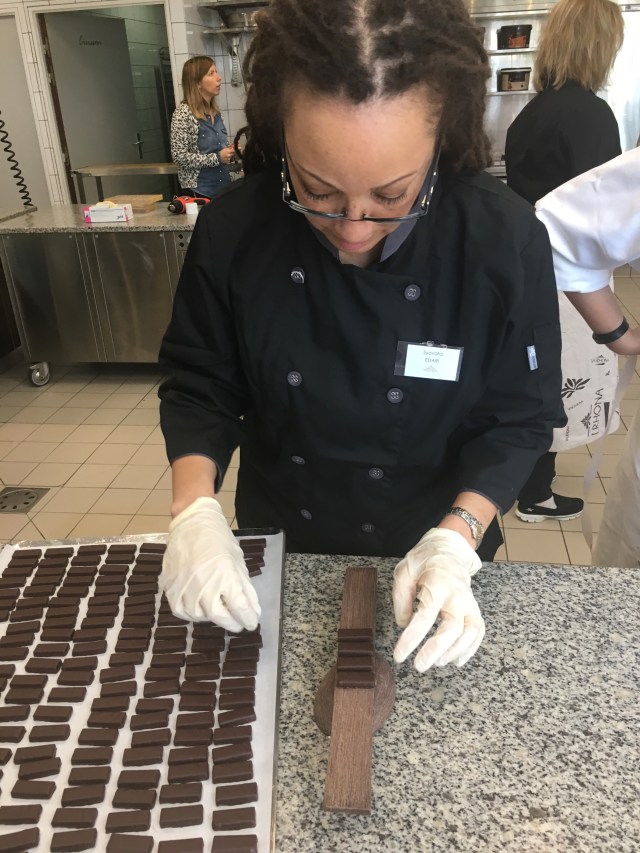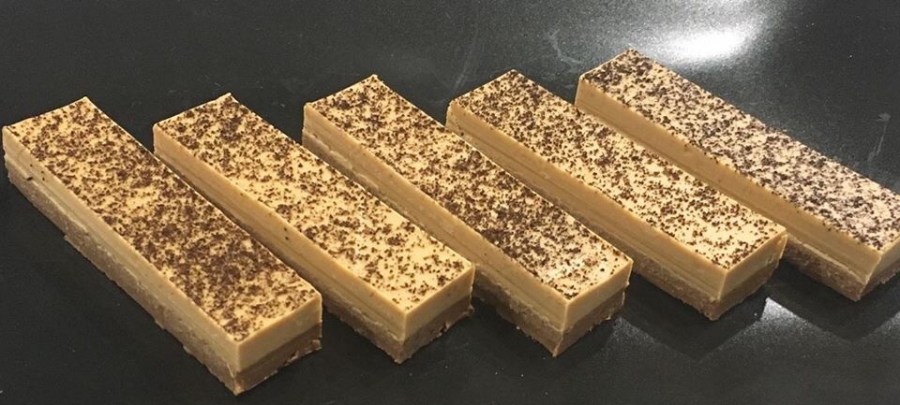
Support Your Local Food Artisans
Now that I know the struggles first hand but also the rewards, I’m a firm proponent of, and a proud member of the growing artisanal food movement. Probably the best decision I made when I decided to launch CocoVaa Chocolatier was to build my chocolate laboratory in a shared commercial kitchen with other food startups. It’s been an economical way to start up but it’s also given me valuable connections with other food artisans. I share a kitchen with Looking Glass Bakery who makes fabulous cheesecakes; Let it Ride Cold Brew who makes the best cold brew I’ve ever had; Laurel of the Ugly Apple whose philosophy is to reduce waste by taking farmer’s overstock and then transform it into delicious breakfasts; Kirk of Origin Breads, who makes the best sour dough bread around (and his polenta loaf…OMG). Sharing a kitchen has given me inspiration, opportunities to collaborate, and I also have colleagues who have similar struggles. This helps to have support when the going gets tough.
Some of us are coming out of other industries and entering the food industry and others have been in the food industry working for other people. What I think every true food artisan has inside of them is not only a love for their craft, but also a strong need and desire to control his/her own destiny. We don’t function well punching time clocks, dealing with rigid schedules and nonsensical rules, not because we’re trying to be obstreperous, but because we need the freedom and creative space to express ourselves. In the mind of the true food artisan is a tacit mantra that tells us daily that we have a gift and we are obligated to share it with others. It’s this love and this calling that drives us to be able to work 20 hour days, on our feet the whole time, without eating and without knowing or caring where the time went. Its looking at the clock at 4:45 and instead of thinking “I can’t wait until it’s 5 o clock and I can go home,” we instead think, “shit, I wish I had 10 more hours!” True artisans will never amass large amounts of wealth because to do so we inevitably have to become highly industrialized. The more industrialized we become, the further away we drift from our path. We constantly ponder ways to scale up to meet growing demands without compromising our products. Even though to survive as businesses we have to learn to relinquish control to employees at some point, the thought of not personally touching each product causes us anguish.
Unless you’re in the industry, what goes into true artisanal food is still terribly under-appreciated in American culture. Some people still complain about the cost of artisanal food, the shorter shelf life, the fact that we may run out of your favorite flavor and you’ll have to wait for a fresh batch to be completed. Or the reality of scarcity when an ingredient isn’t in season or available. Once we change our food paradigm and learn to appreciate fresh, seasonal, and hand made real food, we can learn to appreciate not only what we put in our bodies, but those of us who produce with our hands, and the labor, love and intention behind it.
My chocolates for instance are a 2 day process for each flavor. It can take several hours to make a filling for one piece. But I might start planning the “design” of my flavor 2 months prior. I make my fillings from scratch using real ingredients as opposed to “natural flavorings.” Sometimes ingredients aren’t in season so I may not have them. Thus, my menu changes frequently. I then have to come up with the design for the piece. The decision making process is very personal. Some pieces are inspired by the ingredients, others by elements in nature such as stones, trees, air, water, or fire and others are inspired by events and people. Some designs don’t make sense to the consumer but they do to me. But if you ask me, I love to share stories. And I have a lot of them. Other pieces are inspired by consumers. This is part of the magic of the artisanal food movement. The consumer gets to have a personal interaction with the artisan and even gets to impact the creative process. That symbiotic relationship between consumer and supply chain is so important. Food artisans thrive emotionally knowing that we are satiating the most primal instinct of our consumer – to eat and drink – in a most pleasurable way.
Back to my production process: For molded pieces, I come up with my design, I cast my molds with chocolate, allow it to crystallize, fill it with my filling, then let it crystallize over night. The temperatures at each stage must be precise. The next day I then have to close the mold and allow it to crystallize again. Then I can unmold them. My bars are even a bit more labor intensive because I make them in small batches with various types of single origin chocolate. Because I only have one automatic tempering machine, I hand temper almost all of my bars on my granite tops using the tabeliering method. I really enjoy this despite how labor intensive it is.
I encourage readers to contact me and come visit my laboratory and also meet some of the other artisans in the kitchen I work in so you can support us but also see the love, the effort and the intention we put into everything we do.
Coffee Almond Praliné poured in a frame and ready to crystallize overnight

Finished Coffee Almond Praliné Bars
Real herbs and spices
training in France
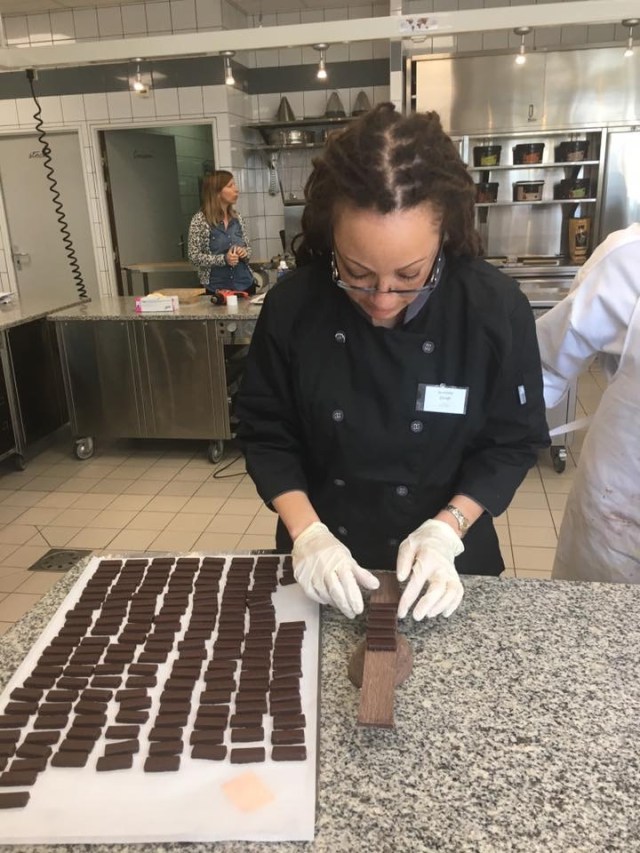
Chocolate shoe filled with espresso caramels
Mint Julep Caramels
Chocolate eggs
My candy case
Follow Your Passion. Master Your Craft.
I had coffee today with a colleague of mine. She’s also an attorney. We met to discuss creative ways to litigate heroin overdose cases. We then digressed briefly and began talking about our passions – mine is making chocolate, and hers is making mittens. She pulled out her phone and began showing me pictures of dozens of pairs of gorgeous, high end looking mittens that she makes out of second hand wool sweaters. Her face lit up when she described how she makes them, how she sources the materials, how she designs them. The lines on her face relaxed, her voice changed, her posture became more erect. I noticed these changes because people tell me I undergo the same transformation when I talk about chocolate. Sometimes it actually bothers me because being a trial lawyer is still my primary source of income and what I’m doing most of the time, so if I’m walking around with an involuntary grimacing look on my face, well…that may not be good for business.
Until I started doing the chocolate, I didn’t realize how many other people out there have hidden talents, passions, and secret dreams of doing something different with their lives other than the career paths they have chosen. Lawyers, like many other professionals, tend not to be honest with ourselves let alone with others about what’s really going on in our lives. We can’t admit weakness. We can’t show vulnerability. That includes being honest with each other about how bad business may really be, or how depressed we may be, or anxious, or sleep deprived, or physically ill, or affected by the vicarious trauma that’s a part of our daily existence. As trial lawyers, we have one of the highest suicide rates of any profession, one of the highest miscarriage rates, one of the highest divorce rates. This is not a healthy profession. We tend not to seek help because admitting what we perceive as weakness is bad for business. This is not true, but it’s a common misperception. The result is that we tend to isolate ourselves, which is the most dangerous thing you can do when you’re depressed.
I think a lot of lawyers and lots of other people are scared to admit that we still haven’t figured out what we want to be when we grow up. But when people come get my chocolate, they somehow feel compelled to share their own dreams and secret aspirations. Perhaps they feel safe as they buy chocolate from a trial lawyer, confessing that they also would really like to be doing something besides what they are doing. I’ve had amazing conversations with people I never would have spoken to over chocolate and people share with me their amazing talents.
I have embraced chocolate, not just because I love chocolate and seem to have a talent for doing interesting things with it, but following my passion has changed my philosophy about life. It’s made me a better lawyer in many ways. Perhaps because I feel like I have a way out of the law, I’m not as concerned with what people think about me. But it’s also my refuge. I put music on when I’m doing it (no lyrics), and I create amazing things. I somehow feel more accomplished when I unmold a tray of perfect shiny bon bons than when I win a trial or a motion. Probably because, as criminal lawyers, we don’t ever really “win.” A criminal prosecution is a tragedy all the way around for everyone involved. My chocolate, on the other hand, always makes people happy. The worst thing that can happen is that someone doesn’t like a particular flavor. But I can fix that. When I sell a truffle or a bonbon, even though the profit margin is nothing compared to what I can make practicing law, I feel more valuable and I value the money I do make from it in a different way.
I’ve spent a great deal of time becoming acquainted with chocolate. I have a special relationship with it. It speaks to me and I speak to it. It has introduced me to a world of fascinating people around the globe who are equally intrigued by it. What I love most about my relationship with chocolate is that it has opened up a whole new mode of communication between myself and my fellow human beings. I can speak to people and bond with them in a completely different way by feeding them chocolate and eating it with them. Chocolate transcends the bullshit. So does making mittens, or making ice wine like another attorney I know, or being a magician like another attorney I know. I live in Wisconsin. We all need mittens at some point. We all have pretty much the same needs as humans – materially and emotionally. So those hidden talents we all have could really be our calling, our gift that we are meant to share with each other. I believe we all have a duty and an obligation to explore that inner pull, that voice that’s calling us to fulfill some other purpose when we feel or hear it.
I have a loyal customer base who support my little chocolate business – not just because it’s really really good (it seriously is) – but because it represents my being true to myself, my responding to my inner voice, and my risking the embarrassment of failure to do what we all secretly want to do but maybe don’t have the confidence to do – to follow our hearts, our dreams, our passions.To listen to that inner voice that’s telling us to make a move. I’m not advocating throwing all caution to the wind, but you should at least explore your passion, especially when it calls you. We not only owe it to ourselves, but to human kind. Human progress, after all, only comes about because someone took a risk. That’s how social change happens, technological advancements, new ideas, inventions, innovations.
The picture above is Tain l’Hermitage in the Rhone Valley in southeastern France. In a couple weeks I will be there learning to master my craft under the tutelage of master chocolatiers with other people like me, some of whom are also taking a risk to pursue their dreams.
As I embark on this journey, this odyssey, this quest to master my craft, I hope that I can inspire you to explore the other layers of your being. What do you really want to do when you grow up?
Vata Edari
Wine Tasting in Paris
Chocolates from my favorite chocolatier, Patrick Roger in Paris

